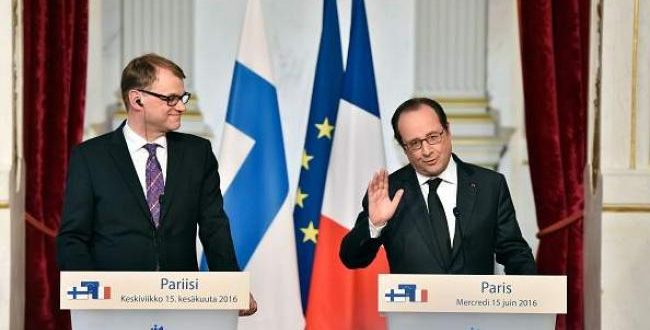The French government is the first one to wholeheartedly approve of the UN climate pact. This shows its sincerity and level of engagement with the present-day concerns afflicting the global village.
Announcing the move at a ceremony at the Élysée Palace President Francois Hollande joked that “signing is good, ratifying is better” and urged more nations to follow France in officially adopting the agreement as soon as possible. Specifically, he called on other European states to ratify the agreement before the end of the year.
The Agreement will only be formally ratified once 55 countries covering at least 55 per cent of emissions have ratified the deal.
To date only 17 states have ratified the agreement, with the bulk of those to approve the agreement from small developing countries.
However, optimism is building that that the historic treaty could come into effect before the end of the year – a full two years ahead of expectations – after the US, China, India, and the EU all signalled they were keen to fast-track the ratification process.
Observers want to see ratification achieved before President Obama leaves office next December in order to reduce the risk of a new president attempting to unpick the deal.
Republican nominee Donald Trump has said he would attempt to kill the Paris Agreement if elected. However, outgoing UN climate chief Christiana Figueres has downplayed the risk of the Treaty being torn up in the event of a Trump White Hous, arguing the US business community would oppose any such move.
In related news, France has this week announced plans to invest €140m in 33 solar and energy storage projects in its overseas territories. Projects in Corsica, Guadeloupe, Martinique, Reunion and the French Guyana all stand to benefit from the funding, which the environment and energy ministry said would result in power for remote areas that can be provided at a lower cost than current diesel generators.
Agencies/Canadajournal
 Canada Journal – News of the World Articles and videos to bring you the biggest Canadian news stories from across the country every day
Canada Journal – News of the World Articles and videos to bring you the biggest Canadian news stories from across the country every day



